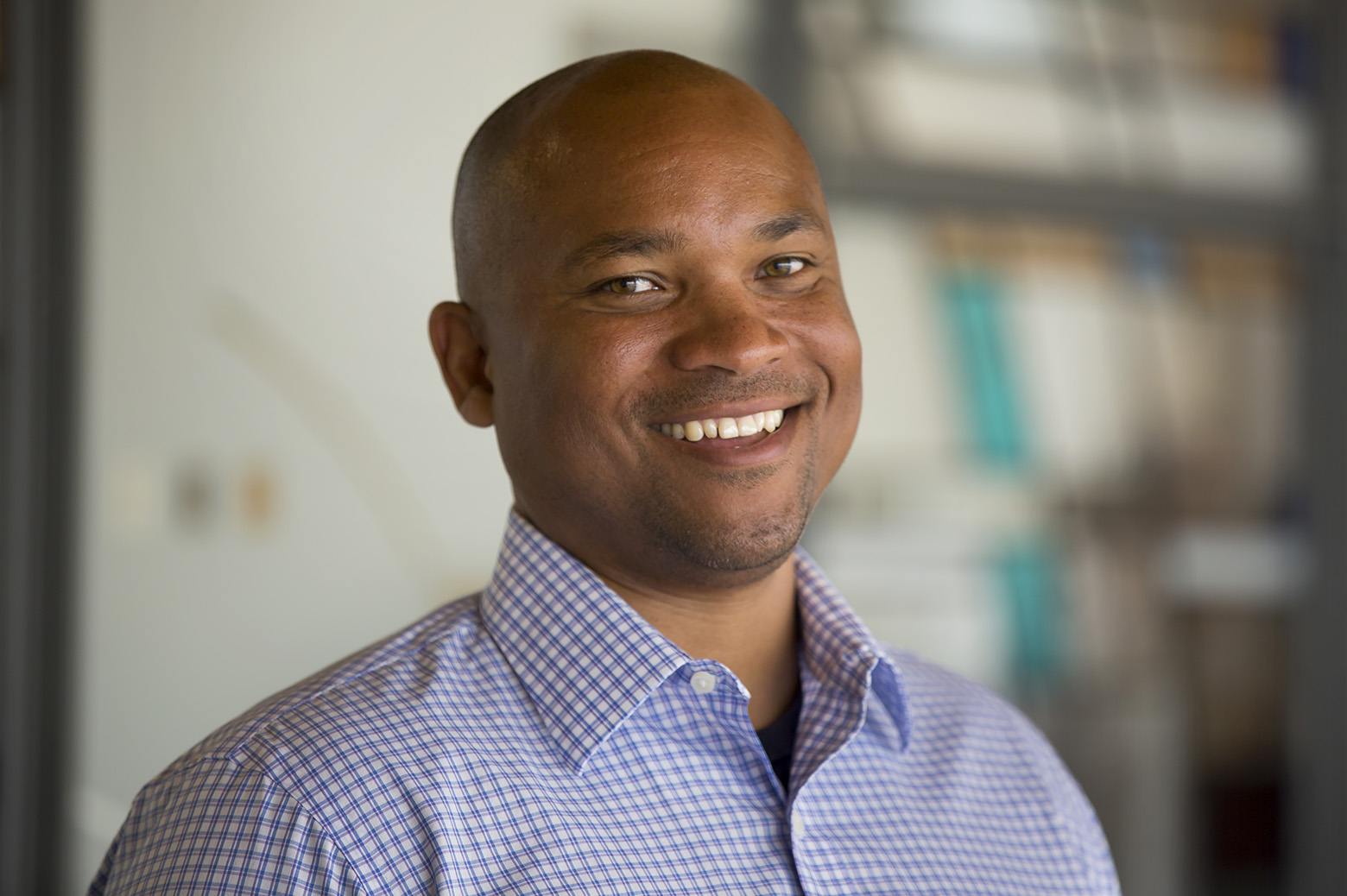Chad Jenkins named Fellow of AAAI
Jenkins is a prolific researcher in human-robot interaction and a leader in ensuring robotics and AI are accessible to everyone.

 Enlarge
Enlarge
Professor Chad Jenkins has been elected a Fellow of the Association for the Advancement of Artificial Intelligence (AAAI).
Jenkins specializes in mobile manipulation robots and human-robot interaction. His research explores how to enable robots to learn from human demonstration in complex environments. In recent years, his work also explored the use of robot systems for assisting aging populations, people with disabilities, and space exploration. His work has been supported through a number of prestigious awards, including a PECASE award, an NSF CAREER Award, an ONR Young Investigator Award, and a Sloan Research Fellowship.
Jenkins is also devoted to ensuring that the fields of robotics and AI are accessible to everyone. He has invested significant effort in the past year advocating for equity in computing, with a guest column in VentureBeat and shared profile in the New York Times with other Black leaders in AI and robotics. He is the founding faculty advisor to the student group Computing4All, which supports people of color studying computer science.
Jenkins is currently Associate Director for Undergraduate Programs in the Michigan Robotics Institute, leading efforts to modernize career pathways into robotics and AI. He led development of a new course in Robotics, ROB 101: Computational Linear Algebra, which teaches first-year students how mathematics and computation are unified for reasoning about data and making discoveries about the world. The course gives life to linear equations and numerical methods through the lens of robotics and contemporary intelligent systems and their compelling applications.
“Computing technology touches everyone and everything,” he said in a Q&A with the College of Engineering. “All that technology is coming from small bubbles, sort of these cloistered communities of technologists that don’t necessarily represent society. And because we don’t have a diverse workforce, we’re seeing biased outcomes in some of those algorithmic decision-making tools and we’re seeing technology that’s not as good as it could be. If it continues, I think we’re going to have discrimination and inequality on a level that’s unimaginable today.”
In 2020, Jenkins was named a Fellow of the American Association for the Advancement of Science (AAAS) for his scientifically or socially distinguished efforts on behalf of the advancement of science. In 2019, he was named a council member for the CRA Computing Community Consortium. In 2018, he joined the Board of the CRA Committee on Widening Participation in Computing Research (CRA-WP). He serves as editor-in-chief for the ACM Transactions on Human-Robot Interaction.
About the AAAI and the AAAI Fellows Program
Founded in 1979, the Association for the Advancement of Artificial Intelligence (formerly the American Association for Artificial Intelligence) is a nonprofit scientific society devoted to advancing the scientific understanding of the mechanisms underlying thought and intelligent behavior and their embodiment in machines.
The AAAI Fellows program was started in 1990 to recognize individuals who have made significant, sustained contributions – usually over at least a ten-year period – to the field of artificial intelligence. In February of each year, the AAAI membership nominates individuals whom they consider to have achieved unusual distinction in the field. These nominations are then considered by the Fellows Selection Committee, comprising nine AAAI Fellows who are current members of AAAI and chaired by the immediate Past President of AAAI. The committee generally selects five-ten new Fellows each year.
As of 2021, seven U-M CSE faculty have been elected as AAAI Fellows.
 MENU
MENU 
